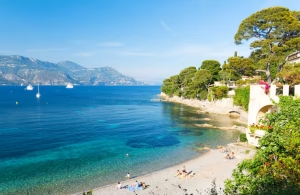The maritime industry, including international shipping and trade, is regulated by a complex network of international treaties, regulations and rules, not to mention different national laws and procedure. As well as having to keep abreast of maritime treaties and laws, maritime lawyers often need to have a good grasp of other areas such as employment, trade and commercial law, private international law and the international law of the sea.
To this end Lawyer Monthly here speaks with Lewis Baglietto QC, Partner of Hassans, a full-service law firm in Gibraltar with offices in Spain.
You are mostly experienced in litigation and shipping; in cases where these come hand-in-hand, what are the most common types of disputes?
The obvious and most common overlap we experience in Gibraltar is the arrest of ships and Admiralty claims in rem, often by creditors, suppliers of goods or unpaid crew. Gibraltar’s Admiralty Jurisdiction is very similar to that of England and Wales and is straightforward to understand. This and our geographical location make Gibraltar an attractive jurisdiction for the arrest of vessels.
How has Gibraltar advocated for Admiralty legislation change to benefit its own state over the past decade?
There has not been much need for change in this case, as Gibraltar has always kept apace with UK and EU legislation facilitating the enforcement of maritime claims and the taking of security in Gibraltar in aid of maritime proceedings or arbitration abroad.
Do you see the need for any reform in Maritime Law in order to further benefit Gibraltar’s trade and business prospects?
Not immediately, but we may need to review it in light of Brexit, and once the nature of the UK’s and Gibraltar’s relationship with the EU becomes clearer.
On the back of a Brexit, how do you think Gibraltar’s Maritime relationship with the EU will be impacted in the near-future?
As yet, without a clear exit plan, we cannot know because it is still too early to tell how Brexit will affect port activities, the practice of maritime law, or ship registration. It is likely that after Brexit Gibraltar registered vessels, like UK registered vessels, will no longer be EU Member State Registered. This will obviously become clearer once the nature and extent of the UK’s future relationship with the EU is worked out.
A leader in your field, you were appointed as Queen’s Counsel in Gibraltar in 2014; what rewards and challenges followed this appointment?
I regard such an appointment as a great honour and recognition of my commitment to the development of legal practice in Gibraltar over the past 30 years. The appointment has not radically changed the many professional challenges and opportunities I have enjoyed and continue to enjoy.
At the end of the day, it’s more a matter of personal and professional satisfaction for myself and my firm (and possibly good publicity too!).
Is there anything else you would like to add?
As I said before I feel very privileged to be able to practise maritime litigation in a place like Gibraltar, which has such a rich tradition in this area, partly because of its geography, but also because of our practical and effective legal system which is based on the English legal system and which is so much more efficient than that of neighbouring countries. This, together with the professionalism of local practitioners, the dedication of the Admiralty Marshal, his broker and the Supreme Court to maritime cases, have secured Gibraltar’s status as a prime Admiralty jurisdiction worldwide.




















